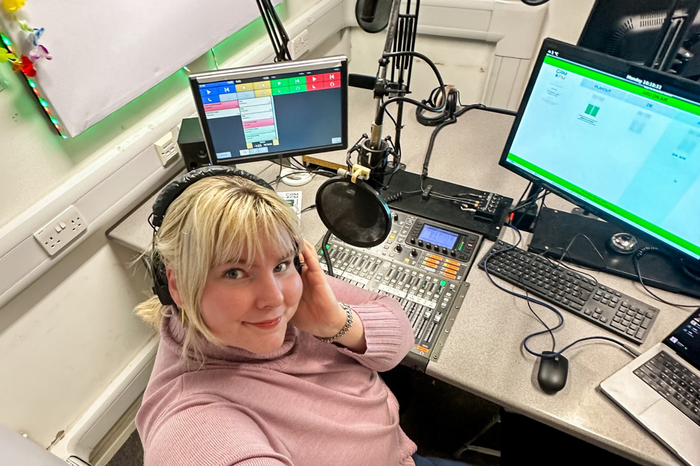Spotify Daylists and the illusion of variety
Lauren Welsby-Riley explores whether Spotify’s latest feature is really improving our listening experience

In the latest instalment of “data harvesting is okay as long as I get a playlist out of it,” Spotify Daylists have well and truly taken over. If you prefer to use Apple Music or, God forbid, some other backwards platform like YouTube Music or Deezer, you may not be aware of what a Spotify Daylist is, nor the joys that the feature brings. Fear not for I am Varsity’s self-proclaimed expert on all things Spotify and I am here to bring clarity to your strange and empty lives.
The Daylist is a product of Spotify’s user algorithm, which cleverly tracks your listening habits at specific times of day and churns out four distinct playlists daily: one for the morning, afternoon, evening and night. These playlists each have a different, hyper-specific name based on the mood of the songs.
“The titles mash together seemingly random adjectives”
And with that, Spotify created the second most marketable trick in music streaming (after Spotify Wrapped, of course). TechCrunch reported that searches for “daylist” on Spotify increased by nearly 20,000% after the addition was released.
It is undeniable that the key “selling point” of the feature is the formula used to name the Daylists and the anticipation that comes with checking in as they change throughout the day. In an absurd Mad Libs-like fashion, the titles mash together seemingly random adjectives, ranging from the bizarre to the downright offensive. At the time of writing, my Daylist is named “sad girl bubblegrunge wednesday afternoon” – if anyone knows what “bubblegrunge” means, please let me know. Similarly nonsensical, albeit admittedly very accurate, was the title “noise vegan saturday morning”. The person who received this Daylist is in fact vegan and, as many of you may know, music does generally make noise.
The names of the playlists seem to have no bearing on the contents; whether the title of my Daylist is “religious music witchy monday morning” or “van life happy indie tuesday afternoon”, Chappell Roan will be present.
In a borderline xenophobic, albeit very funny, turn of events, a Welsh friend of mine recently received the Daylist “language learning rugby wednesday morning,” named so because she listens to a lot of Welsh-language songs – a likely thing for a Welsh person to do.
But therein lies the problem with a feature that prioritises shareability over quality of content. In giving users four different playlists every day (with the exception of my boyfriend, who received “solitude mysterious tuesday afternoon,” immediately followed by “solitude mysterious tuesday evening”), Spotify tricks us into thinking it’s diversifying our tastes when, in reality, we’re just being recommended the same four sapphic pop girls on a loop. Or maybe that’s just me.
“Spotify tricks us into thinking it’s diversifying our tastes”
The point still stands that, when we’re searching for new music recommendations or looking to introduce smaller artists into our listening habits, we often have more success with Instagram ads than the music platforms themselves. Taylor Swift’s newest album noticeably dominates my Daylists (despite the fact that I have yet to listen to the release in full) in a move which sends a clear message to Spotify users: “She is our favourite artist and we won’t stop until she’s yours too.”
I am careful not to tar all Daylists with the same brush, though. I cannot deny that Spotify Daylists have been a permanent fixture in the Varsity office this term, providing the ideal background noise for Yearbook preparation and the perfect conversational cannon fodder.
Ultimately, they’re a bit of fun and, as someone who has been known to listen to an entire album in full only to restart the album as soon as it ends, I really shouldn’t complain too much about the lack of variety. I worry only that Spotify is not doing enough to push smaller artists to listeners who may enjoy them, instead amplifying the same five voices in every Daylist, regardless of whether the artists match the theme.
Besides, it’s surely only a matter of time before the mass commercialisation of Daylists begins to unfold before our very eyes, as was the case with Spotify Wrapped (see: Trainline’s Year in Trains) and the trend is ruined forever. But, until then, I’ll keep listening to my “goblincore haunting” playlist and wondering what on earth Phoebe Bridgers has got to do with goblins.
 Lifestyle / Am I better than everyone? 26 December 2024
Lifestyle / Am I better than everyone? 26 December 2024 Comment / In pursuit of the Protestant work ethic at Cambridge20 December 2024
Comment / In pursuit of the Protestant work ethic at Cambridge20 December 2024 Arts / Varsity’s anti-reading list28 December 2024
Arts / Varsity’s anti-reading list28 December 2024 Arts / What on earth is Cambridge culture?20 December 2024
Arts / What on earth is Cambridge culture?20 December 2024 Features / Home for the holidays: bridging identities25 December 2024
Features / Home for the holidays: bridging identities25 December 2024






